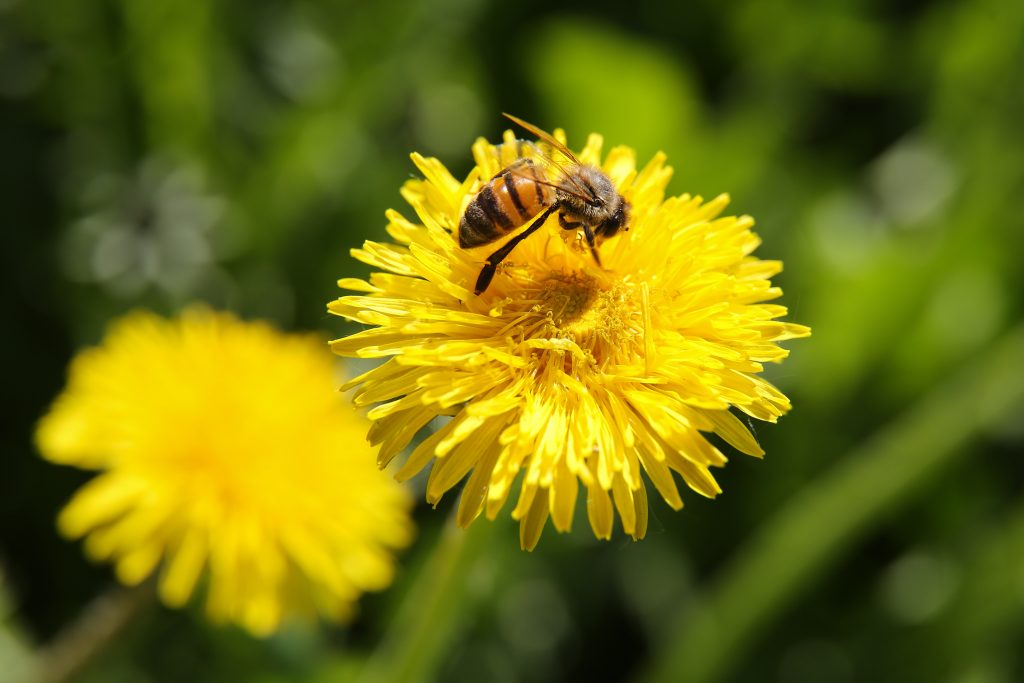
Protect Your Pollinators
If it wasn’t for those buzzing little critters like bees and butterflies, commonly called pollinators, you may not be eating dinner today, let alone breakfast tomorrow. Pollinators aren’t just responsible for helping plants thrive, they’re responsible for 1/3 of the bites of food we eat each day. If all pollinators were to cease to exist, eventually there would be no fruits, no vegetables, nothing for animals to eat or graze on, and eventually the end of life as we know it. With that said, protect your pollinators!
Don’t pull those ‘weeds’!
What most might consider as an unsightly weed – dandelions, white clover, yarrow, coneflower and so on are all very good plants for pollinators. So rather than using herbicides to kill them off or pulling them up and throwing them in the trash or compost, consider leaving them be and letting those pollinators do what they do best.
Give them their favorite treats!
Plant native flowers and other plants in your garden or around your home to help provide a variety of flowering plants for pollinators. If you live in a small space and you can’t garden, try a potted plant you can put outside during the summer!
Don’t use pesticides!
Sure, some bugs and insects can be detrimental to your plants or downright nasty to be around. However, pesticides aren’t just harmful to them. Pesticides can be very harmful to pollinators, and you too if you’re not very cautious.
If you absolutely must use them, there are ways you can help mitigate any impact on pollinators. Here are a few helpful tips:
- Use pesticide during “sleepy” hours. That is, when the pollinators are not active. Bees for example, will not pollinate a flower at nighttime.
- Spray as close to the plant as possible, and never spray the actual flower.
- Follow the directions on the label to a T.
Consider leaving that old hunk of wood in your yard, or even building your bee friends a house
Nesting beetles, a common pollinator, will tend to nest in old decaying wood. Like a tree limb or branch laying on the ground. If you have something like this laying around, chances are you’re providing a little home to some helpful pollinating beetles!
Bees love nesting in small spaces. “Bee houses” are becoming more popular and provide a safe space for bees to nest and raise their offspring. You can buy these outright, or you can make one fairly simply at home!
Remember, it’s important to protect your pollinators!
These are just some ways and reasons you can and should help protect your pollinators. You may also want to consider looking into local non-profits, beekeepers, and so on to see how else you might be able to help! Remember, if it wasn’t for pollinators – you wouldn’t be eating.
